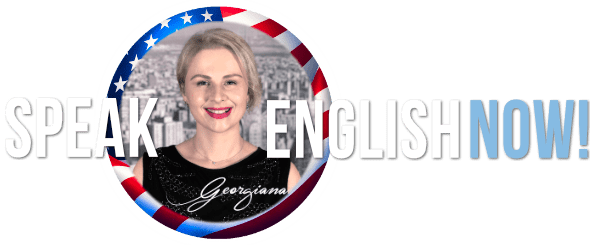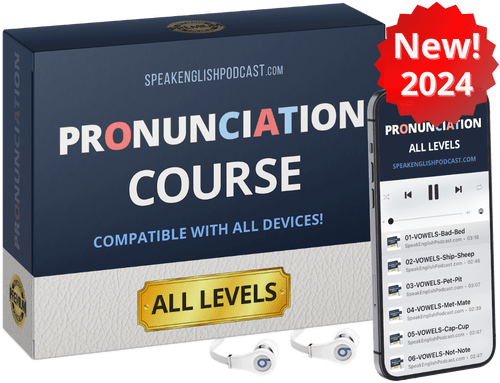Listen to a new episode of Speak English Now Podcast, your favorite material for practicing your spoken and heard English. You will also learn about lifestyle and culture, language, vocabulary, and how to improve your English more effectively.
Transcript:
Hi, I am Georgiana, your English teacher and founder of SpeakEnglishPodcast.com. My mission is to help you to speak English fluently.
Today, I am going to talk about time prepositions in English.
And with a point of view story, you will learn grammar in context without memorizing any boring rules.
Before we get started, go to my website SpeakEnglishPodcast.com
to get the transcript. It’s free!
Ok. Let’s start!
Prepositions are short words (on, in, to, of) that usually stand in front of nouns, pronouns, or a group of nouns.
They show direction, time, place, location, or introduce an object.
We commonly use prepositions to show a relationship in space or time or a logical relationship between two or more people, places, or things.
But today, we will focus on time prepositions.
I don’t recommend memorizing the examples since that method doesn’t work. It’s always best to learn in context by listening repeatedly.
Ok. Let’s start learning some time prepositions in English.
We use ON before the days of the week:
Examples:
“I went to the doctor on Monday.”
“Don’t call me on Sundays because I’m resting.”
“I’d like to buy you lunch on Friday.”
We use IN before months, sessions, time of the day, year, seasons, or after a certain time period.
Examples:
“I was born in September.”
“Many people go on vacation in August.“
“I like running in the morning.”
“My mom came back from the trip in the evening.”
“Her family goes to Hawaii in winter.”
“I love going to the beach in summer.”
“We visited Mexico in 2010.”
“My sister was born in 1998.”
“I’ll see you in an hour.“
“I’ll be back in 20 minutes.”
We use AT for night, for the weekend, and at a certain time.
Examples:
“We sometimes finish work at night.”
“Kids go to bed at 9 pm.”
“I visit my family at Christmas.”
We use SINCE with days or dates.
Examples:
“I haven’t seen Tom since yesterday.”
“She hasn’t eaten since breakfast.
“Since the party, he has not spoken to me at all.”
We use the preposition FOR to indicate the length of time.
Examples:
“I haven’t seen him for two years.”
“She had been taking care of her mother for a year.”
“I’ve waited for the bus for two hours.”
We use “AGO” to determine a specific time in the past.
Examples:
“She renewed her membership about two months ago.”
“Winter seems a very long time ago.”
“He should have gone a long while ago.”
“BEFORE and AFTER”
We use “before” and “after” to say that something happens before or after a specific time. You can use “before” and “after” with specific times, days, years, or months.
Examples:
“They never visit us before the summer arrives.”
“They will visit us after the summer arrives.”
“I’m hoping we can finish work before 5 pm.”
“I’m hoping we can finish work after 4 pm.”
Ok, that’s it for now, but before we continue…
I have something important to tell you. I want you to learn English 3 times faster, and that’s why I created a video course. Go to SpeakEnglishPodcast.com and get my video course for FREE!
(END OF THE EXTRACT).
Resources:
- Audio MP3 (right-click to save the audio)
- FULL-TEXT PDF (right-click to save the TEXT)
Recommended Material:



It is awesome. I am interested to speak English fluently. So want to follow your video course
gunseli.gultekin@hotmail.com